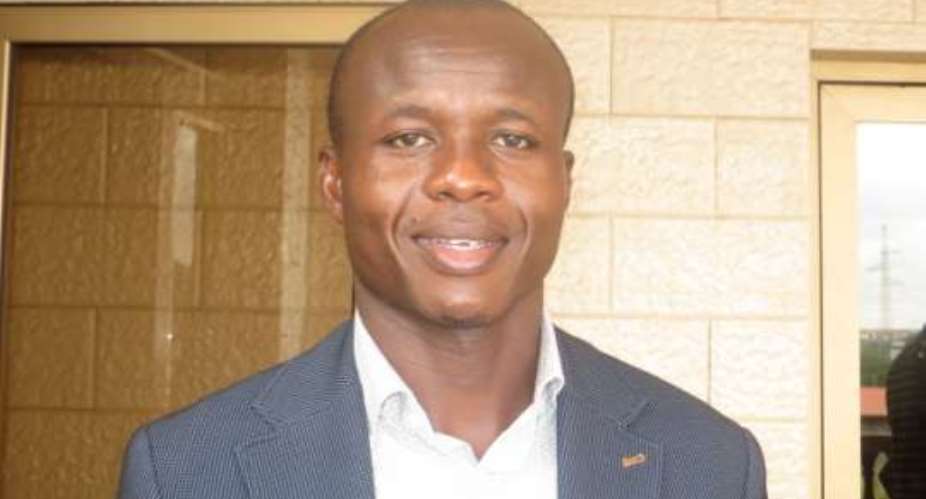Mr Eric Banye, Country Programme Coordinator for SNV has called for a multi-stakeholder commitment to address the challenge of post-harvest losses.
'The issue of post-harvest losses is increasingly threatening to plunge Ghana into a food insecure country and therefore needs multi-stakeholder commitment to address the problem.'
Such commitment, he said must not only be focused on developing policies and programmes but also commitment in terms of budgetary allocations that will ensure that such policies and programmes are well and effectively implemented to achieve the desired results.
Mr Banye, who said this during the first Upper West Regional post-harvest loss forum in Wa noted that Agriculture had the potential to industrialise the country but that greater efforts must be put into reducing post-harvest losses.
He noted that post-harvest losses were increasingly becoming a disincentive to farmers in Ghana, the reason why the number of food insecure population was unacceptably high in the country.
Mr Banye said the investment, which required to reduce post-harvest losses was relatively modest compared to the impact of the losses, noting that a World Bank report indicated that investing one dollar to reduce post-harvest losses would give results equivalent to 40 million dollars.
He said post-harvest loss intervention should be seen more as an integrated component to reduce food insecurity in the country, adding that they could not continue to promote agriculture alone by the supply of incentives while forgetting that there would be high losses.
'What is the essence in supporting the farmer to produce 10 acres when he can technically not harvest 10 acres or he will harvest 10 acres but he can technically not keep the 10 acres?', he questioned.
'As we promote agriculture as an alternative to industrialising this country, I think it is also our responsibility to look at what are the worse areas', he said adding that the sad aspect was also what was known as the quantity verses quality loss.
Mr Banye said unfortunately most of the technical farmers usually counted the loss at the quantity side forgetting the loss at the quality side, noting that sadly consumers of the produce were not able to count the quality lost due to lack of capacity.
He said there were a lot of approved and unapproved chemicals in the market, which were abused by farmers due to various reasons including; lack of technical know-how and poverty resulting in the farmer not having the patience to wait for the potency of the chemical to go down before sending the produce to the market among others.
Mr Banye noted that it was the collective responsibility of all stakeholders to help address the issue of post-harvest losses in the country, hence the organisation of the regional level forums to ensure that they deliberated on the key issues affecting the regions in terms of post-harvest losses.
He explained that the SNV Voice for Change (V4C) project was an evidence base advocacy programme that seeks to build the capacity of Civil Society Organizations (CSOs) including; the media for them to be able to influence the agenda setting policy development.
The forum which was under the theme: 'Addressing Post-Harvest Loss, implication for planting for food and jobs policy in the Upper West Region' was organised by the Ghana Trade and Livelihood Coalition (GTLC) in collaboration with SNV under the V4C partnership project.





 2024 elections: Resign if you can't be faithful to party - Sagnarigu NDC PC desc...
2024 elections: Resign if you can't be faithful to party - Sagnarigu NDC PC desc...
 Five arrested, remanded over alleged murder of two police officers at Transacco
Five arrested, remanded over alleged murder of two police officers at Transacco
 Tax exemptions better than incentives for churches – Tax Analyst tell Bawumia
Tax exemptions better than incentives for churches – Tax Analyst tell Bawumia
 Transport Minister sues Law Platform Editor for defamation
Transport Minister sues Law Platform Editor for defamation
 Voter registration: Police arrest NPP Treasurer for Mpohor for registering minor
Voter registration: Police arrest NPP Treasurer for Mpohor for registering minor
 "This nonsense must stop" — Lawrence Tetteh vows to march to Jubilee House over ...
"This nonsense must stop" — Lawrence Tetteh vows to march to Jubilee House over ...
 2024 elections: “If indeed you stand for peaceful elections the time is now for ...
2024 elections: “If indeed you stand for peaceful elections the time is now for ...
 I have the attributes to be president of this country — Bernard Monarh
I have the attributes to be president of this country — Bernard Monarh
 Cecilia Dapaah saga: ‘Turf war’ between AG, EOCO, OSP indicates they’re not ‘cor...
Cecilia Dapaah saga: ‘Turf war’ between AG, EOCO, OSP indicates they’re not ‘cor...
 Ghana will become the first African country to embrace blockchain-powered gover...
Ghana will become the first African country to embrace blockchain-powered gover...
